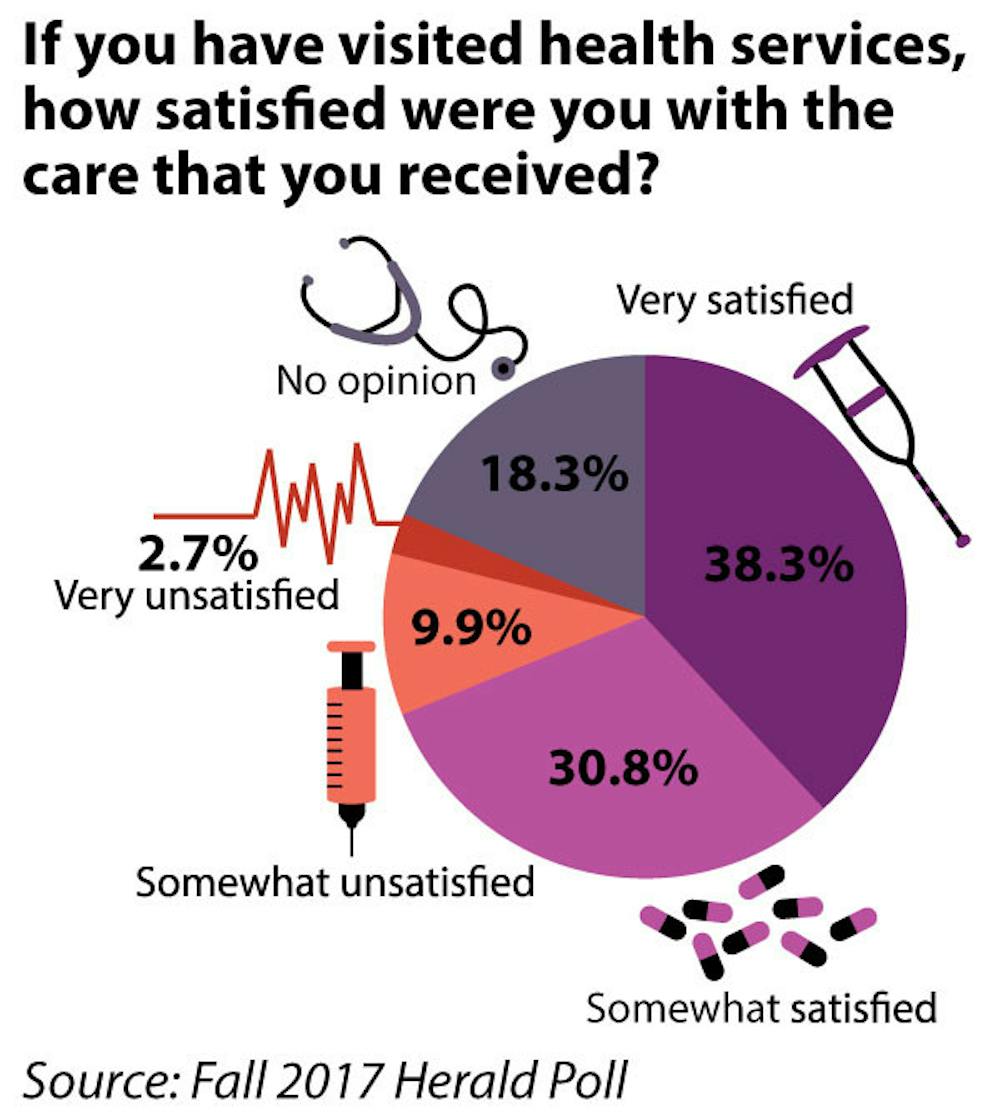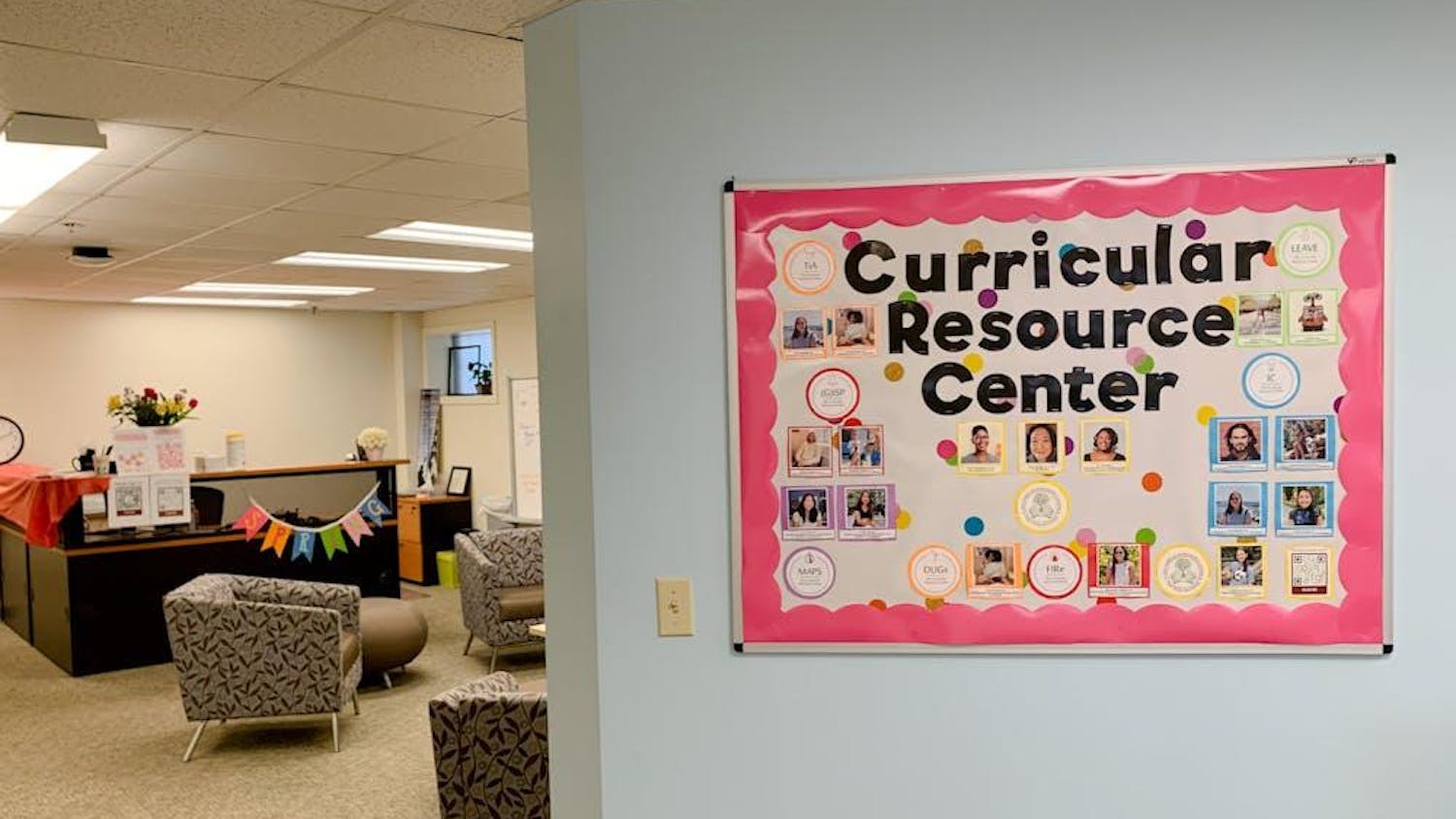
The Herald held its bi-annual undergraduate poll Nov. 8-10 and Nov. 15, finding that 48.2 percent of female-identifying students polled are catcalled at least once a month while at Brown. The same is true for 60 percent of the students surveyed who did not specify their gender. Of the 41.7 percent of students surveyed who have never been catcalled on or near campus, 76 percent identify as male.
The poll also found that a slight majority of undergraduates polled — 51.1 percent — oppose the College Curriculum Council’s proposal to move the course drop deadline closer to the middle of the semester. About 23 percent of students strongly agree with the proposal, and 16.3 percent somewhat agree. Nearly 10 percent of students have no opinion.
The election of Donald Trump also changed the way some students behave. Nearly 60 percent of students said they have consumed more news since the election, and 47.8 percent of students said they participate in activism more often. Twenty percent of students said their relationship with family became more positive after Trump’s election, and 9.8 percent said it got worse. All other students said there was no change. Similar numbers describe students’ surveyed relationship with their friends: 23.8 percent said their relationship with friends improved, 8 percent said it got worse and 68.2 percent said it stayed the same.
Students were also surveyed about their drug habits. Around 81 percent of Brown students surveyed have consumed alcohol in the past year, and 49.9 percent have used marijuana. 18.1 percent have used tobacco, seven percent have used cocaine and 6.1 percent have used psychedelic mushrooms. 17.5 percent of students surveyed did not consume any of the listed substances in the past year.
Does Brown have school spirit? Nearly 45 percent of students somewhat agree it does, and 10.8 percent strongly agree. About a quarter of students somewhat disagreed.
Health services received mostly positive ratings: 38.3 percent of those surveyed said they were very satisfied, and 30.8 percent were somewhat satisfied with the care they received. 18.3 percent had no opinion, while 12.6 percent were somewhat or very unsatisfied.
The poll found that over half of students have a majority of friends from different socioeconomic backgrounds. 17.4 percent of students surveyed said most (over 75 percent) of their friends come from a socioeconomic background similar to theirs, and another 25.5 percent said this was the case for the majority (50-75 percent) of their friends. 34.5 percent of students said that about half of their friends come from different socioeconomic backgrounds — 15.8 percent said that a minority of their friends came from similar socioeconomic backgrounds as them, and 6.8 percent said this was the case for very few of their friends.
Of the students surveyed who did not study abroad, the most commonly cited reason was concentration requirements — 35.9 percent of students indicated this concern. 27.3 percent said it was a matter of personal preference, and 23.7 percent said financial concerns played into their decision. Students also cited extracurricular concerns — 17.3 percent — and recruitment for internships — 11.3 percent — as well as social concerns — 10.5 percent — as other reasons they chose to stay on campus.
The majority of students are generally confident in their ability to get a job in their chosen fields with their Brown degree — 31.2 percent are very confident, while 43.6 percent are somewhat confident. 18.3 percent of students are somewhat concerned, and 4.4 percent are very concerned. 3.6 percent of students were neutral on the topic.
How well do Brown professors foster discussion that respects opposing points of view? About 19 percent of students strongly agree with the idea that Brown professors foster such discussion, with 47.9 percent somewhat agreeing and 19.4 percent somewhat disagreeing. Just 4.5 percent of students strongly disagreed.
Among polled students, 41.1 percent approve of the way the Undergraduate Council of Students is handling its job, with 11.8 percent strongly approving. 37 percent had no opinion, while 10.1 either somewhat disapproved or strongly disapproved.
Students also generally supported the way President Christina Paxson P’19 is handling her job. 45.7 percent generally approved of her work thus far, and 16.2 percent strongly approved. 24.7 percent had no opinion, and 10.7 percent somewhat or strongly disapproved.





